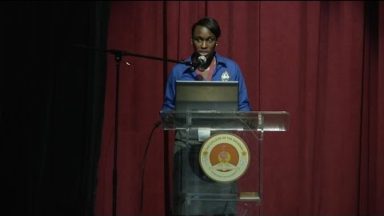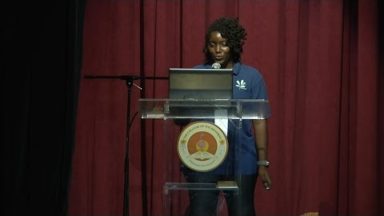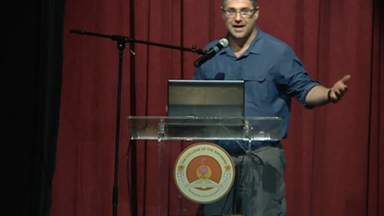From Students to Stewards, Bahamas Awareness of Mangroves (B.A.M.) introduces a transformative mangrove curriculum to Abaco
Presented by Amy Heemsoth
Amy Heemsoth, Olivia Patterson-Maura, and Cassandra Abraham
The Bahamas Awareness of Mangroves (B.A.M.) is an immersive, yearlong experiential education program that engages high school students and teachers in Abaco to learn about and restore mangroves through project-based learning. This pilot program is designed to strengthen STEM education and increase ocean literacy, while adhering to Bahamian education standards. Generating behavior change and inspiring Bahamian youth to become environmental stewards are two main outcomes expected from this program. During the academic year, Friends of the Environment (FRIENDS) and the Khaled bin Sultan Living Oceans Foundation (LOF) partner to implement this curriculum in three different installments in two Abaco secondary schools. A tailored curriculum provides students with local and global perspectives on mangrove science and conservation. Each of three program installments includes opportunities for professional development for teachers, and program evaluation and development. B.A.M. facilitates school participation by providing teaching materials and funding for mangrove field trips. The core of the project takes place over eight months when students grow mangrove propagules in their classroom. This part of the program is executed using project-based learning, a teaching method which allows students to explore real-world problems and acquire deeper knowledge over extended periods of time. Using this classroom approach, students will gain the knowledge and skills necessary to investigate the question at hand: Which type of media do mangrove propagules grow best in? Students will then be engaged in a mangrove restoration and cleanup project. Though evaluation results are not available at this time, the expectation is that by providing an experiential, problem-based education program in The Bahamas, students who have learned about the importance of mangroves, took the time to nurture them, and participated in restoration measures may have a sense of ownership and stewardship over the mangroves for years to come.







Recent Comments